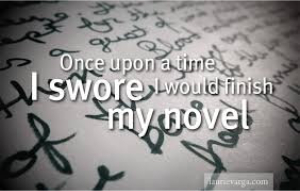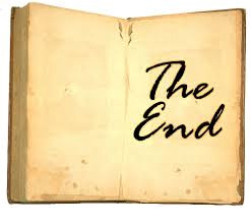How to Write a Book
In my travels and via this blog, I am constantly encountering people who express to me their desire to write.
I’ve mentioned here and also in person that some people enter the writing arena for profit or thinking being an author is a quick avenue to fame and fortune. To these would-be writers, I let them know that the writing profession as far as they are concerned is like buying lottery tickets and hoping for a winner. Your dreams can come true only if your numbers are the lucky ones. So, in sum, your chances of immense success with writing are nothing more than playing a special kind of lottery. Great bucks do happen but only to a very limited, lucky few.
Then we have the people who need to write or believe they have a calling to write. They will write no matter what and if it is published that is okay but not essential.
Then you have the people who ought to write. Many of these are found sitting in therapists’ offices spilling their thoughts out to a set of ears for big bucks. I’ve often told these people they’d be better off to write it all down in a book. They’ve got a lot on their minds and to pay someone to listen might and might not work out. Either way, you’re out a good stack of bucks.
On the other hand, these people could try spilling all their thoughts and secrets onto a blank screen or sheet of paper. You could edit it for continuity and in the process learn a lot about yourself and perhaps find out what your major problem in life is. Many great writers have agonized on paper and the result has been enlightenment for us the reader and fame and perhaps fortune for themselves.
A goodly number of folks don’t write or go to a paid listener. They read. They’re generally very heavy into “how-to” and self help books. (”How To Have An Attractive Personality In Ten Easy Lessons.”) This has become a lucrative field in itself for writers. At least one of these books is cheaper than a sit with a therapist.
 There are others though for whom reading isn’t the answer. They have a deep feeling that they must let their feelings out. They belong to a group that I will call “there is more room on the outside than the inside.” These people feel compelled to express their feelings and emotions to others. That is just fine. You should definitely give writing a chance. If you do write via this method, don’t get it hooked up with dollar signs or the whole house of cards will come tumbling down. Your project will end up a mess and more than likely your book will never get past chapter one.
There are others though for whom reading isn’t the answer. They have a deep feeling that they must let their feelings out. They belong to a group that I will call “there is more room on the outside than the inside.” These people feel compelled to express their feelings and emotions to others. That is just fine. You should definitely give writing a chance. If you do write via this method, don’t get it hooked up with dollar signs or the whole house of cards will come tumbling down. Your project will end up a mess and more than likely your book will never get past chapter one.
If you are going to let it all out and bucks are not in the equation, then here is what you must do. DON’T talk with anybody about your writing—just jump in and do it. Look at the hundreds of people you have heard make remarks about their going to write a book—but it never happens. It doesn’t happen because they have very little self-discipline. To be successful in writing a book means that you have to be committed to writing daily for thirty minutes to an hour. Everyday. If you can write more, that is wonderful. The rule is write more, talk less.
I’ve known many people who want to write a book or say they are going to write one. Talk is cheap but actually making some inroads into writing that book takes on-going discipline. They start writing and nothing much happens. Soon the project is forgotten and abandoned. These people tell me their biggest problem is they simply do not know how to get started or continue past page ten.
I tell friends and students of mine that a good way to establish the necessary self-discipline of writing is to compose a page review of a film or TV show they have recently seen.
In your composition, list the good points as you conceive them and the poor points. Tell what in your opinion could have made the film better or what made it an excellent viewing experience. Then try to touch on a theme in your last paragraph that the movie was trying to make. This will take you at least forty-five minutes to an hour. Do this for one week daily without fail. Then let what you’ve written cool off for a couple of days before you read it. You’ll probably surprise yourself. You are now ready to jump into telling your personal story to a sheet of paper or a screen.
Pretty soon your activity will become a daily habit and you’ll actually begin to look forward to it every day. Remember! Don’t tell anyone you are doing this. Otherwise they will ask you questions and your trying to answer them will take energy from your writing. It’s just you and that blank page or screen and nobody else.
Oh, and most importantly. DO NOT think of grammar, construction or facts. JUST WRITE! Once you’ve finished, you can edit the whole thing or get someone to help you or hire a professional.
 Hey, you have a book! Now, it’s a whole new world of what to do with it when you’re finished. You may put it away and re-read it occasionally or you might try to market it for publication. The first thing is to get the book written. You can do it if you follow my no-nonsense approach as outlined in this blog.
Hey, you have a book! Now, it’s a whole new world of what to do with it when you’re finished. You may put it away and re-read it occasionally or you might try to market it for publication. The first thing is to get the book written. You can do it if you follow my no-nonsense approach as outlined in this blog.
Remember though, if you think of big bucks or think negatively by telling yourself you can’t do it or any other downer, then you are doomed. Just go see the shrink and the only book that you will produce is your check book.
Good writing and best to you.



